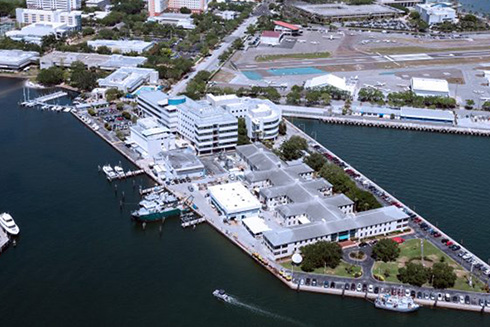News
News Articles
Viewing items with Category: All Categories, Year: All Years

Predicting high cross-currents near south Florida ports using machine learning
USF marine scientists develop algorithm prototype to improve port safety.
February 3, 2022Blogs and Perspectives

How to teach children about climate change, inspire hope and take action to change the future
Children and youth know that climate change is altering lives, environmental patterns and futures.
January 27, 2022Resiliency News

Ten USF faculty members receive national recognition as AAAS Fellows for academic research
The American Association for the Advancement of Science (AAAS) has named 10 University of South Florida researchers as new Fellows.

USF Scientists Keep a Watchful Eye on Water Levels in Tampa Bay
Scientists at the University of South Florida College of Marine Science (USF CMS) continue to build momentum on their portfolio of work dedicated to monitoring and addressing coastal change.
January 20, 2022Blogs and Perspectives

USF to launch new Center of Excellence in Environmental and Oceanographic Sciences on the St. Petersburg campus
The center will be located on USF’s St. Petersburg campus and will build on the world-class reputation of the College of Marine Science.
January 10, 2022News

Rising Tides December 2021
View some of the highlights in the Rising Tides Newsletter, December 2021 edition.
December 15, 2021Rising Tides Newsletter

Study of Antarctic ice’s deep past shows it could be more vulnerable to warming
In a study published today in Nature , an international team of scientists, including USF College of Marine Science (USF CMS) Associate Professor Amelia Shevenell and graduate student Imogen Browne, documented the evolution of Antarctica’s ice sheets about 20 million years ago.
December 15, 2021News

CMS in the News 2021
The USF College of Marine Science news team is dedicated to sharing USF CMS's story to a global audience. View CMS in the news for 2021.
December 15, 2021CMS in the News

‘Living Shoreline’ being built on St. Pete waterfront to protect area from continued erosion
Volunteers are working to build a “living shoreline” along an area of Lassing Park in St. Pete to help protect and restore the waterfront.
December 15, 2021Resiliency News

CMS faculty on list of high impact researchers ranked worldwide
An update to a study by Elsevier and Stanford University shows a strong showing from faculty at the USF College of Marine Science.
December 13, 2021Blogs and Perspectives

Gokushoviruses – viruses that show that, in the ocean, size doesn’t matter
Viruses have been getting a bad rap lately, but viruses are essential to many processes in the oceans.
December 13, 2021News
![USF marine scientists launch first mission to map Tampa Bay’s vulnerable coastal areas using remotely operated ‘uncrewed’ vessel. Lessons learned from an innovative approach will inform coastal resiliency efforts in Florida and beyond. A press conference was held Dec. 9th. [Additional drone video by Eckerd College / Joe Salcedo.]](/marine-science/news/images/usf-marine-science-floor-mapping-490x327.jpg)
USF launches first mission to map vulnerable coastal areas in Tampa Bay and Gulf of Mexico using a remotely operated ‘uncrewed’ vessel
The mapping products from this approach will also be used to improve storm surge modeling and prediction, maritime safety, fisheries management and more.
December 9, 2021News